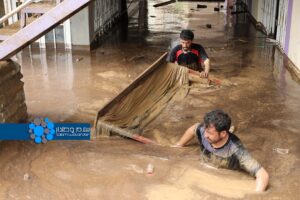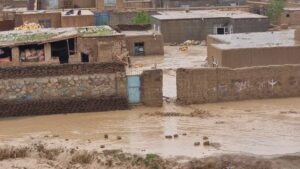MONITORING (SW) – As the world mark International Women’s Day this week, UN High Commissioner for Human Rights Michelle Bachelet has underlined the need to empower women in Afghanistan, saying that they are “not passive bystanders” and should contribute to the future of their country.
Delivering a statement on Women’s Rights in Afghanistan, Bachelet said women of this country are often portrayed in the international fora and media as victims. “In fact, Afghan women have – in the face of war, extreme poverty and unspeakable violence and discrimination – been working tirelessly to protect and provide for their families and communities,” she said.
The UN rights chief stated how Afghan women have been attacked for speaking up, and excluded from positions of power and decision-making. “They are not passive bystanders.”
For this Afghanistan to find peace and progress, Bachelet argued that Afghan women should be active agents for change and be given the space to lead peacebuilding, humanitarian, and development processes.
“Girls should be able to go to school and university and be empowered to contribute robustly to the future of their country. Women should be visibly represented in the police force, in courts of law, in government and in the private sector – indeed in every sphere of civic and public life,” she said.
Condemning all forms of violence against women, she said they have the equal right to demonstrate peacefully without fear of reprisal.
Taliban rule has had a devastating impact on Afghan women and girls, according to several media reports.
Since taking control in August last year, the Taliban have imposed rights-violating policies that have created huge barriers to women’s and girls’ health and education, curtailed freedom of movement, and deprived many of earned income.
On Tuesday, the UN in Afghanistan expressed solidarity with Afghan women and girls as they face the consequences of multiple crises, combined with entrenched gender inequality and discrimination.
The UN Mission in a statement said that women in Afghanistan are disproportionately impacted by a legacy of conflict, in addition to drought and the collapsing economy, which has plunged millions in Afghanistan into debt and humanitarian need.
“What we are witnessing today in Afghanistan is a crisis of catastrophic proportions. Everyone in the country is affected by the current crises, but the situation for women and girls is particularly concerning as their rights and access to opportunities have become increasingly challenged,” said Deborah Lyons, the Secretary-General’s Special Representative (SRSG) for Afghanistan.
The UN High Commissioner for Human Rights, Michel Bachelet, has said that Afghan women should be given leadership opportunities to be active actors for change in peace, humanitarian and development processes, and for the country to achieve peace and progress.
The Office of the United Nations Assistance Mission in Afghanistan (UNAMA) said in a statement issued by the UN High Commissioner for Human Rights that it made the remarks during a visit to Kabul to mark the International Women’s Day.
Most Afghan women are portrayed as victims in the international community and in the media, the statement said. In the face of war, extreme poverty, indescribable violence and discrimination, Afghan women are working tirelessly to protect and provide for their families and communities, the statement said.
“They were threatened and attacked for protesting,” Bachelet added. They have been deprived of power and decision-making, but this has not stopped them from bravely suing for their rights and building support networks. “They are not passive spectators.”
The UN High Commissioner for Human Rights has stressed that Afghan girls must be able to go to school and university and be able to contribute to their country’s future. According to her, women should be clearly present in the police force, the courts of law, government institutions and the private sector, and in every part of civil and social life.
She also said that Afghan women have the right to stage demonstrations without fear of retaliation and interrogation, to speak freely about the problems of society, and to contribute to finding solutions that reflect their realities and aspirations.
Michel Bachelet has emphasized that violence against women and girls in public and private places is not only intolerable; But the perpetrators are also condemned and must be brought to justice. He added that lasting peace, economic development and the realization of the rights to health care, education, justice, requires the participation of women and girls.
The statement said that the UN High Commissioner for Human Rights listened to the experiences of Afghan women and met with officials of the Islamic Emirate to address the urgent needs for the advancement and realization of basic human rights for women and girls, as well as to end many serious human rights violations. Women and girls are exposed to it, he says.
However, since the Islamic Emirate’s domination of Afghanistan, many restrictions have been placed on the activities and presence of women in various fields. Women have not been given a share in any part of the government of the Islamic Emirate and have even been barred from working in government institutions and continuing education.
ENDS






